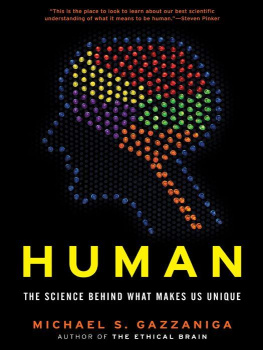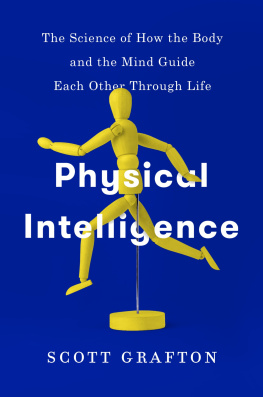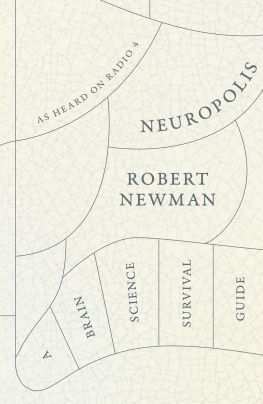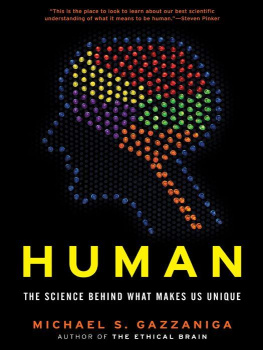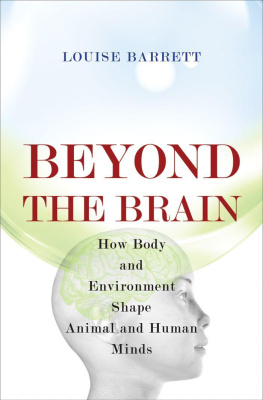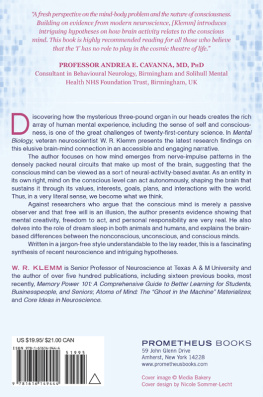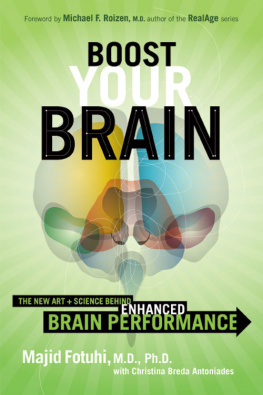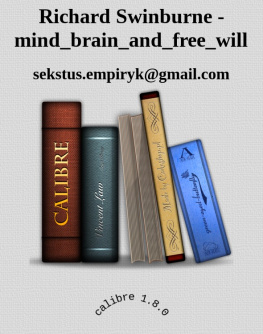Whos in Charge?
Free Will and the Science of the Brain
Michael S. Gazzaniga

For Charlotte, Unquestionably the Eighth Wonder of the World
Contents
F ROM S COTLAND, FOR MORE THAN 125 YEARS, THE G IFFORD Lectures have been dispatched into the world owing to the behest and endowment of Adam Lord Gifford, a nineteenth-century Edinburgh advocate and judge with a passion for philosophy and natural theology. Under the terms of his will he directed these lectures to be given on the topic of natural theology with the stipulation that the subject be treated as a strictly natural science and without reference to or reliance upon any supposed special exceptional or so-called miraculous revelation. I wish it considered just as astronomy or chemistry is.... [T]hey may freely discuss... all questions about mans conceptions of God or the Infinite, their origin, nature, and truth, whether he can have any such conceptions, whether God is under any or what limitations, and so on, as I am persuaded that nothing but good can result from free discussion. The lectures have focused on religion, science, and philosophy. If you have truly sampled the books that have flowed from them, you will quickly discover their bone-rattling quality. Some of the greatest minds of the Western world have delivered their ideas during the course of these lectures such as William James, Niels Bohr, and Alfred North Whitehead to mention a few. Many of the long list of participants have precipitated major intellectual battles; some have spelled out the vastness of the universe or decried the failure of the secular world to provide a hopeful message about the meaning of life, while others have flat out rejected theologynatural or otherwiseas a worthwhile topic for grown-ups to spend any time thinking about. Seemingly, everything has been said, and all of it is stated with such clarity and force that when the assignment fell to me to add my own perspective, I almost withdrew.
I think Im like everyone who has read the many books that have come from those lectures. We all feel the tug of an insatiable desire to carry on the quest to know more about the situation in which we humans find ourselves. In a way, we are stupefied by our interest because we do now know a great deal about the physical world, and most of us believe the implications of our modern knowledge, even though we sometimes have a hard time accepting wholly scientific views. Thinking about these things is what a Gifford lecture is all about, and I found myself wanting to throw in my own two cents worth. Though submitting my own perspective in that forum is as scary as it is heady, I do want to show that all of the spectacular advances of science still leave us an unshakeable fact. We are personally responsible agents and are to be held accountable for our actions, even though we live in a determined universe.
We humans are big animals, clever and smart as we can be, and we frequently use our reasoning to a fault. And yet, we wonder, is that it? Are we just a fancier and more ingenious animal snorting around for our dinner? Sure, we are vastly more complicated than a bee. Although we both have automatic responses, we humans have cognition and beliefs of all kinds, and the possession of a belief trumps all the automatic biological process and hardware, honed by evolution, that got us to this place. Possession of a belief, though a false one, drove Othello to kill his beloved wife, and Sidney Carton to declare, as he voluntarily took his friends place at the guillotine, that it was a far, far better thing he did than he had ever done. Humans are the last word, even though we can feel occasionally pretty inconsequential as we look up at the billions of stars and universes within which we are situated. The question still haunts us, Are we not part of a bigger scheme of meaning? Conventional hard-earned wisdom from science and much of philosophy would have it that life has no meaning other than what we bring to it. Its completely up to us, even though the gnawing question always follows as to whether or not that really is the way it is.
But now, some scientists and philosophers are even suggesting that what we bring to life is not up to us. Here are some truths of modern knowledge and their awkward implications. The physiochemical brain does enable the mind in some way we dont understand and in so doing, it follows the physical laws of the universe just like other matter. Actually, when we think about it, we wouldnt want it any other way. For instance, we wouldnt want our actions, such as lifting our hand to our mouth, to result in a random movement: We want that ice cream in our mouth not on our forehead. Yet, there are those who say that because our brains follow the laws of the physical world, we all, in essence, are zombies, with no volition. The common assumption among scientists is that we know who and what we are only after the fact of nervous system action. Most of us, however, are so busy, we cant take time out to think through or be burdened by such claims, and only a few of us succumb to existential despair. We want to do our jobs, get home to our wife or husband and kids, play poker, gossip, work, have a Scotch, laugh about things, and simply live. We seemingly dont puzzle the meaning of life most of the time. We want to live life, not think about it.
And yet, a certain belief is palpably dominant in the intellectual community, and that belief is that we live in a completely determined universe. This belief seems to logically follow from all that our species has learned about the nature of the universe. Physical laws govern the happenings in the physical world. We are part of that physical world. Therefore, there are physical laws that govern our behavior and even our conscious self. Determinism reignsboth physical and socialand we are asked to accept it, and to move on. Einstein bought it. Spinoza bought it. Who are we to question it? Beliefs have consequences and indeed, because we live in what is believed by many to be a determined world, we are commonly asked to be slow to assign blame and to not hold people accountable for their actions or antisocial behavior.
Over the years, Gifford Lecturers have approached the issue of determinism from many different perspectives. The quantum physicists have said there is wiggle room on the idea of determinism ever since quantum mechanics replaced the Newtonian view of matter. There is uncertainty at the atomic and molecular level, and this fact means you are free to choose the Boston cream pie over the berries the next time the dessert tray is passed around; your choice was not determined at the very instant of the big bang.
At the same time, others have argued that atomic uncertainties are not relevant to the workings of the nervous system and how it ultimately produces the human mind. The dominant idea in modern neuroscience is that a full understanding of the brain will reveal all one needs to know about how the brain enables mind, that it will prove to be enabled in an upwardly causal way, and that all is determined.
We humans seem to prefer black and white answers to questions, binary choices, all or nothing, all nature or all nurture, all determined or all random. I will argue that it is not that simple and that modern neuroscience is not, in fact, establishing what amounts to a wholesale fundamentalism with respect to determinism. I will maintain that the mind, which is somehow generated by the physical processes of the brain, constrains the brain. Just as political norms of governance emerge from the individuals who give rise to them and ultimately control them, the emergent mind constrains our brains. In a time when we all think we can agree that causal forces are the only way to understand our physical world, are we not in need of a new frame of thinking to describe the interactions and mutual dependence of the physical with the mental? As Professor John Doyle at Caltech points out, in the world of hardware/software, where everything is known about both systems, their functionality only exists by both realms interacting. Yet, no one has captured how to describe that reality. Something like the big bang happened when mind emerged from the brain. Just as traffic emerges from cars, traffic does ultimately constrain cars, so doesnt the mind constrain the brain that generated it?
Next page


